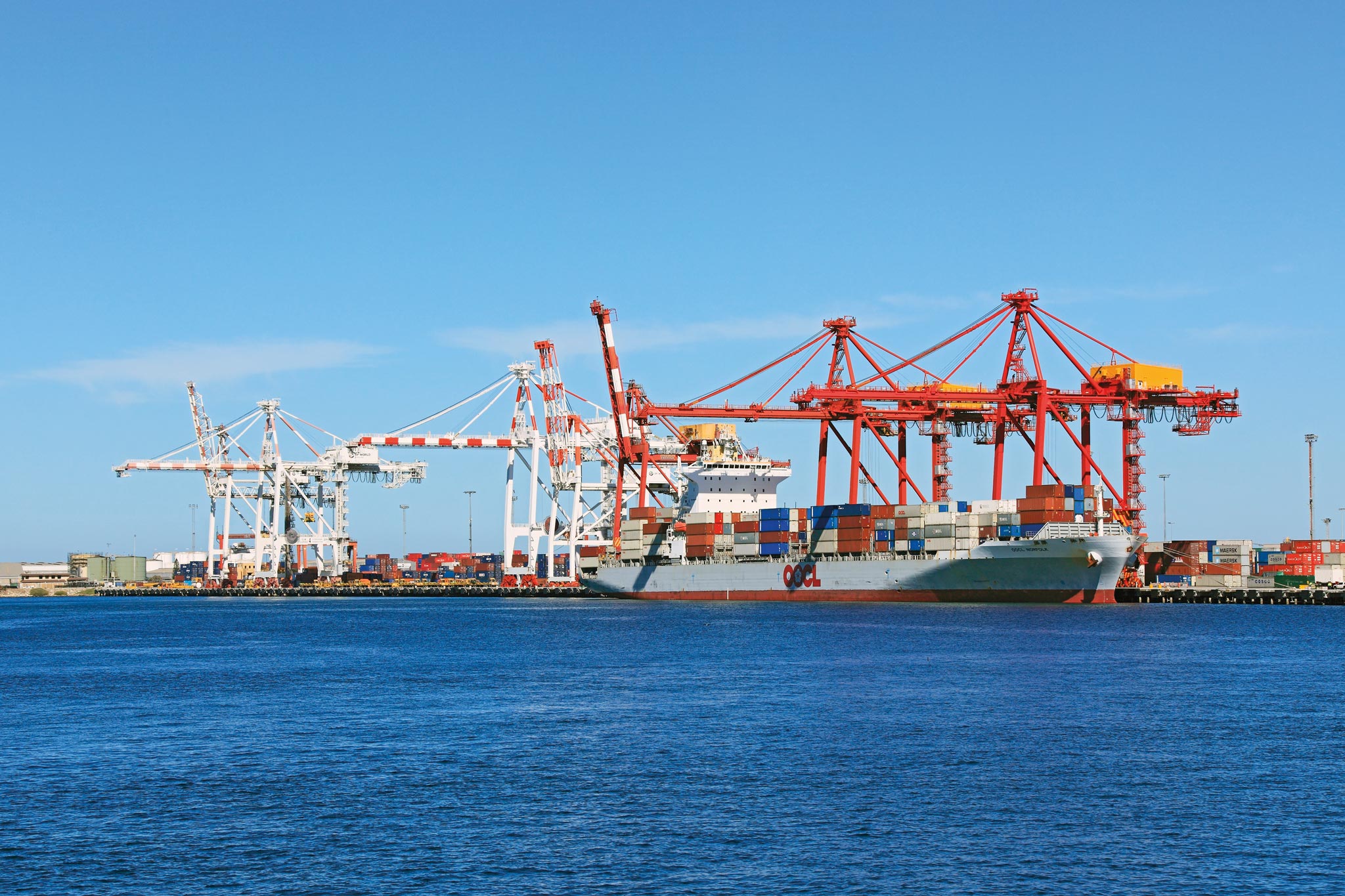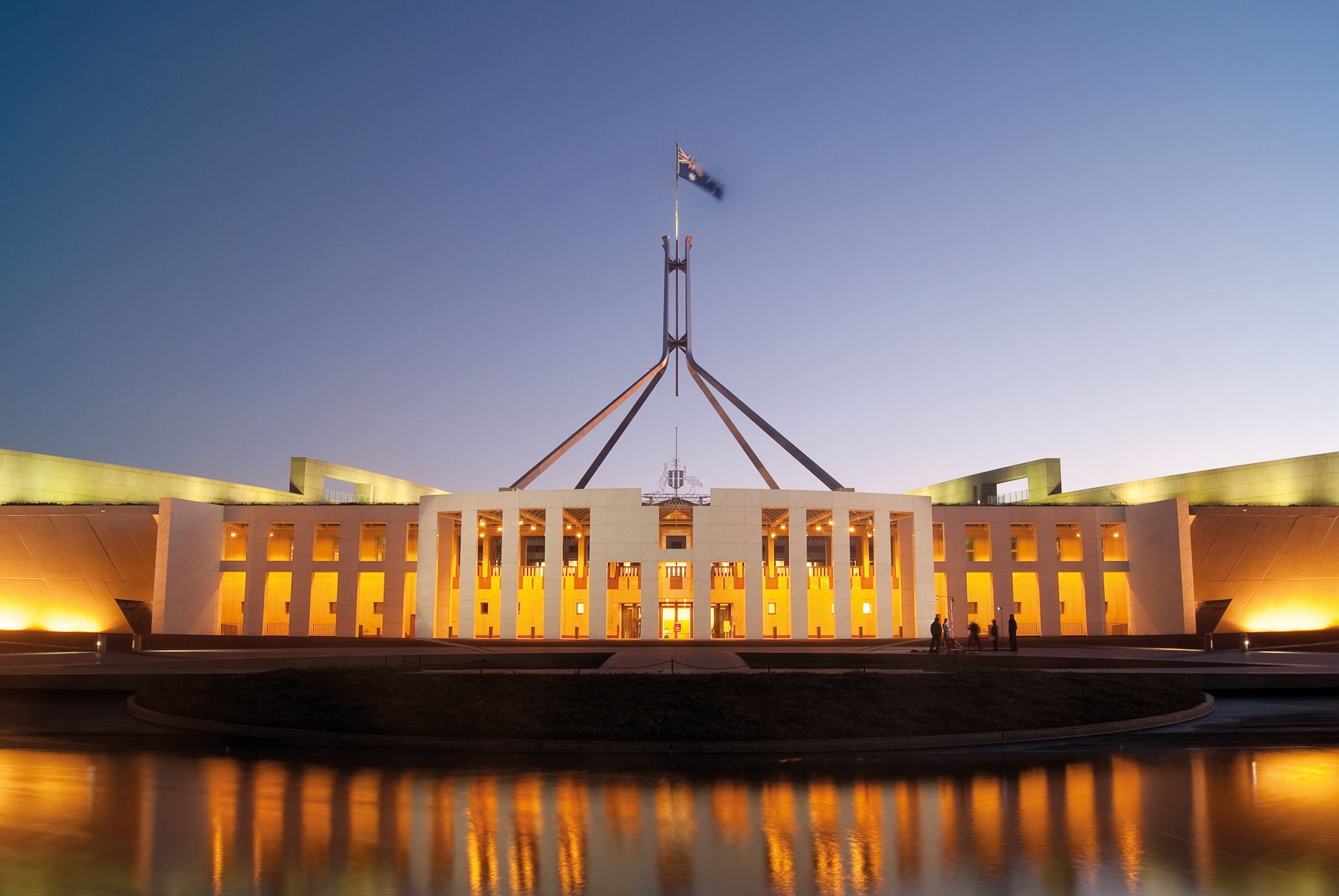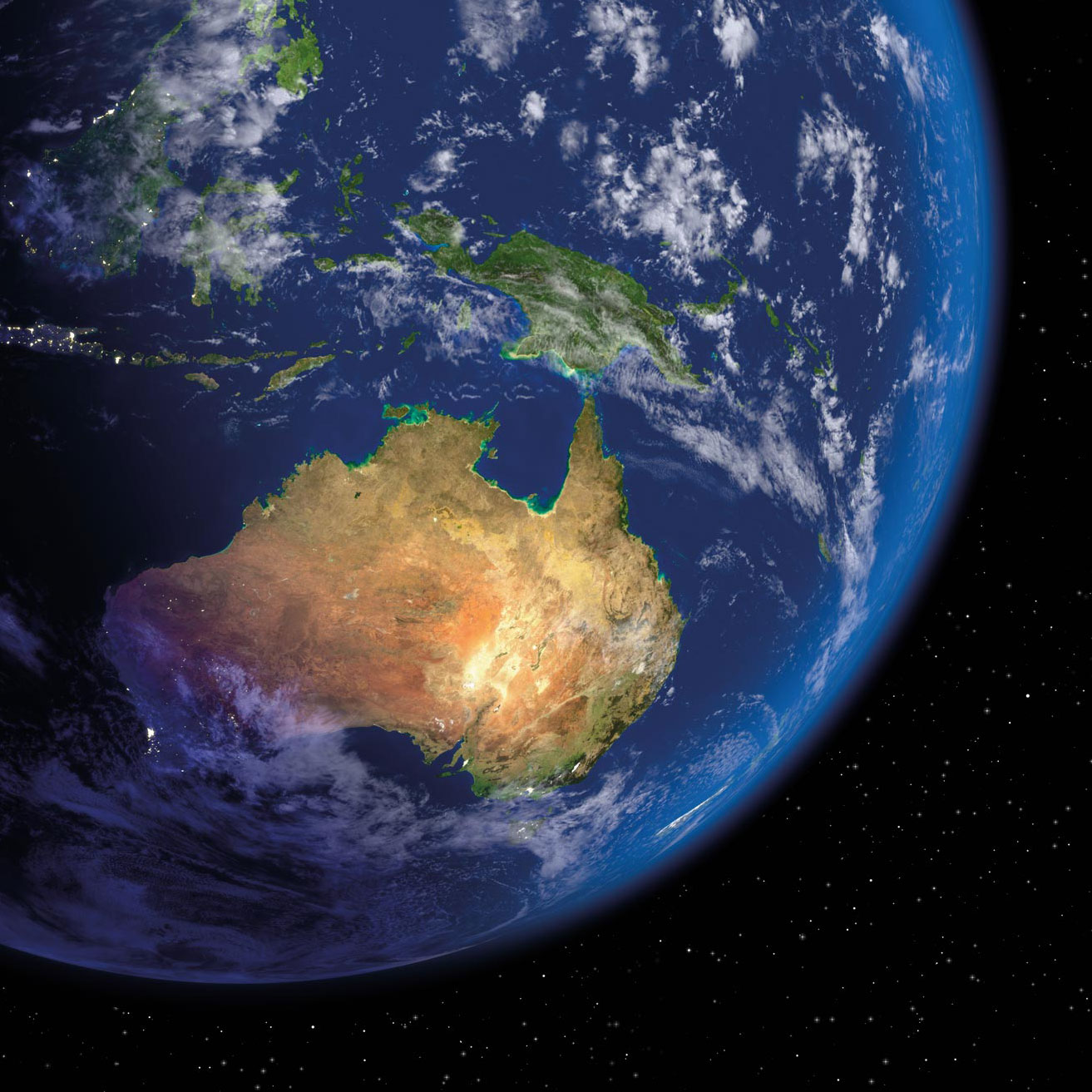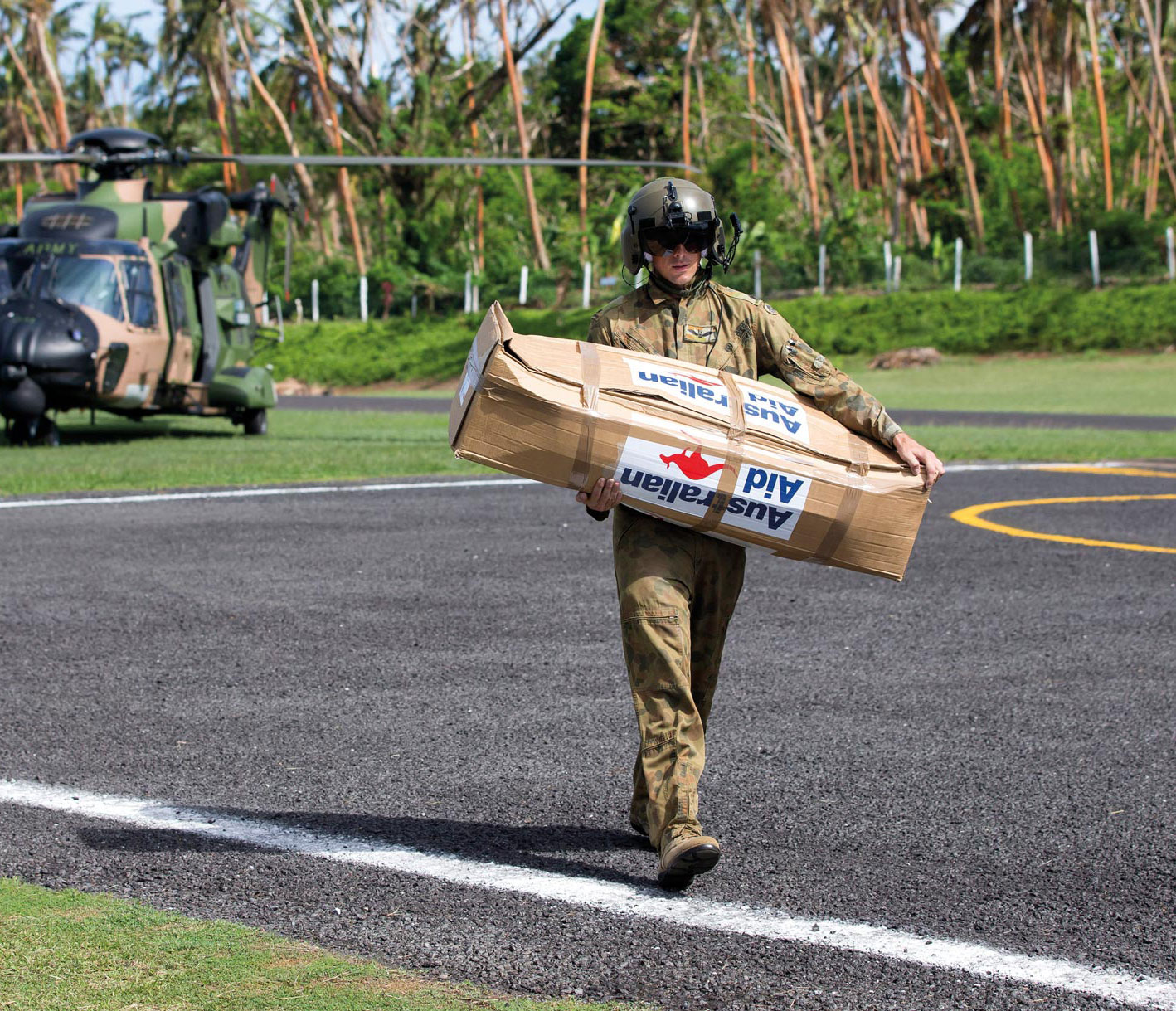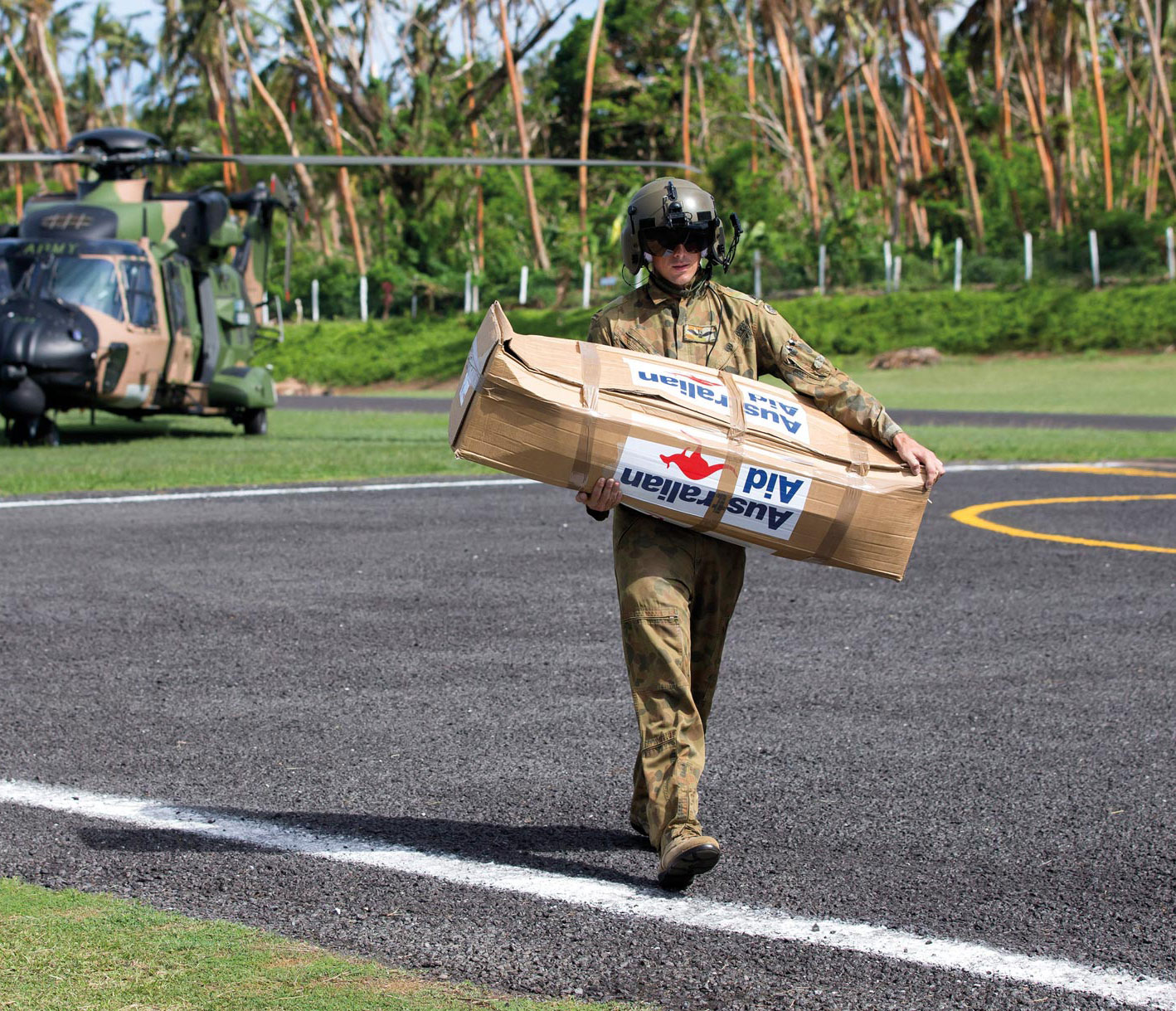Globalisation has lifted hundreds of millions of people out of poverty, helped drive global economic growth and delivered affordable goods and services worldwide. By having the policy settings to benefit from trade, investment and skilled migration, Australia’s economy is stronger and our standard of living higher.
At the same time, some countries are dealing with a backlash against globalisation as citizens express concern about the impact of technological change, overseas competition and migration on their societies (Chapter 2). Technological shifts and competitive trade pressures will sustain concerns in many countries about job security.
As a result, some governments are under pressure to protect particular industries from international competition. Publics and governments globally are debating whether policies to keep economies open and break down barriers to trade and investment work in their interest. The United States, in particular, is seeking to renegotiate some trade agreements and take other steps to address measures it regards as unfair and to reduce its trade deficit.
We cannot be certain to what extent these pressures might lead to a significant retreat from the long-term trend of a liberalising world economy. We do know however that protectionism represents a serious risk to Australia’s interests, particularly if major economies take actions that substantially impede trade and investment and weaken trade rules. Even under this scenario, economic openness would remain in Australia’s interests. Any protectionist response on our part to events elsewhere would risk hurting Australian workers, drive up prices and weaken incentives to innovate. It would mean lower living standards and less choice for Australian consumers.
Australia as an export nation
Australia exported more than $337 billion in goods and services in 2016, amounting to one fifth of our economic activity. Our exporters are often world leaders.
Australia is a minerals and energy superpower. In 2016, we exported more than $140 billion in minerals and energy—more than half of total merchandise exports. Figure 4.3 shows minerals and energy exports to our major markets.
We are the world’s largest exporter of coal and iron ore, and one of the world’s largest exporters of LNG. We have the world’s largest reserves of a range of metals and minerals including gold, iron ore, lead, nickel, zinc and uranium. For 60 years, we have helped power Asia’s economic growth and industrialisation (Figure 4.4).
Australia is among the top 10 agricultural exporters in the world. In 2016, we exported more than $47 billion in agricultural and fisheries products, accounting for more than two-thirds of our agricultural production. We are the world’s largest exporter of beef and wool. Our reputation for producing safe and high-quality food is second to none.
Services make up a growing share of our exports, more than $75 billion or one fifth of exports in 2016. Australia is the third-largest provider of education to international students, attracting more than 550,000 students from more than 180 countries in 2016. More than 8.5 million tourists visited Australia in 2016–17. In the previous financial year, international tourists contributed $34 billion to our economy and supported the employment of over 580,000 people (Figure 4.5).
Manufacturing makes up $44 billion or 13 per cent of our exports. Australia’s manufacturers are linking into global value chains and developing high value-added products and services including research and development, design and engineering. More than four out of five Australian manufacturing businesses are small or medium in size. They rank fifth among advanced economies for business innovation.
Figure 4.3 Australia’s minerals and energy exports by major market (2016)

Source: Department of Industry, Innovation and Science
Figure 4.3 Australia’s minerals and energy exports by major market (2016) image description: This chart, titled, Australia's minerals and energy exports by major market (2016), illustrates that exports of minerals and energy to the EU were $4 billion; India $8 billion; Republic of Korea $13 billion; Japan $30 billion and China $61 billion.
Making globalisation work for Australia
Most Australians recognise that globalisation has significantly benefitted Australia.3 Our economic record of 26 years of uninterrupted growth is based on policies adopted by successive governments to ensure Australia benefits from economic openness. This has enabled Australia to prosper while maintaining social cohesion and fairness.
Nonetheless, the Government understands that maintaining public support for trade, investment and skilled migration is vitally important to our continuing prosperity. We will continue to work with the business community and other partners to explain the importance of an open Australian economy to our future prosperity. The Government will strengthen advocacy in support of our trade and investment agenda.
We seek to ensure Australians find opportunity in a growing economy and implement policies that help businesses and workers adapt to change and share in the benefits of trade and investment.
We recognise that technological change is an opportunity for business and the wider community. The Government’s approach to innovation and science fosters globally competitive businesses and institutions that provide better paying jobs. We continue to look for ways to stimulate innovation, including by enabling the commercialisation of research, supporting start-ups, and helping existing businesses to build capability and skills.
Our flexible vocational and higher education pathways help Australians to develop skills to find jobs and opportunity in changing workplaces. At the same time, our social safety nets, skills retraining and labour market programs for Australians affected by technology and competition, including in regional centres, will also help communities adapt to change.
Figure 4.4 Australia’s iron ore and coal driving Asia’s growth
Protecting rules to support trade and investment
Internationally, Australia will continue to take a determined stand alongside like-minded partners to resist protectionism. The Government will make vigorous efforts bilaterally to minimise the impact of protectionist and trade restrictive measures on Australian businesses. At the same time, we will remain a strong advocate for an open global economy supported by enforceable rules.
The rules embodied in the WTO limit arbitrary and unfair trade restrictions and are of fundamental importance to Australia’s interests. We will demonstrate leadership, creativity and perseverance in seeking to advance liberalisation within the WTO.
Australia has played an instrumental role in achieving recent WTO outcomes, such as the Trade Facilitation Agreement. This agreement will reduce red tape and compliance costs for exporters (such as customs procedures), potentially boosting global trade by up to $1 trillion a year.
Similarly, we contributed substantially to the WTO agreement reached in 2015 to eliminate agricultural export subsidies. This was a goal long pursued by Australia because of the damage to our farmers from these subsidies. Addressing the remaining substantial distortions and reducing barriers to trade in agricultural products will remain a priority for Australia in the WTO.
Reflecting the importance of services exports, we will pursue multilateral outcomes to strengthen global rules governing trade in services. We will also support the extension of WTO rules into new areas such as investment, competition policy and e-commerce.
Progress at the multilateral level, however, is likely to be slow and uneven. Australia will therefore pursue agreements among a sub-set of WTO members—known as plurilateral agreements—that have the potential to boost trade. Plurilateral agreements can also act as building blocks to wider multilateral agreements.
Australia will continue to press for the resumption of negotiations on two plurilateral agreements—the Trade in Services Agreement and the Environmental Goods Agreement—because of their potential to generate major benefits. If agreement by all WTO members on a new e-commerce deal proves to be out of reach, Australia is ready to work with others to pursue a plurilateral agreement.
In addition to the WTO’s importance to Australia as a forum for negotiating new and enhanced rules, an effective WTO dispute settlement system will remain vital to limiting unilateral or retaliatory trade actions that damage trade and global growth. To date, countries have been largely prepared to accept the judgment of an independent umpire. In the period ahead, we will urge the United States, China and other major economies to settle trade disputes within the framework of WTO rules and processes.
Australia will continue to press all members to comply with WTO rules and obligations. We will work with others to strengthen the WTO’s monitoring and enforcement of rules. To ensure our credibility and avoid retaliation against our interests, our domestic policies will need to remain consistent with our WTO obligations.
Figure 4.5 Inbound international tourism to Australia (select markets, 2016–17)

Source: Tourism Australia
Note: Percentage figures are year on year change from 2015–16
Figure 4.5 Inbound international tourism to Australia (select markets, 2016–17) image description: This infographic, titled, Inbound international tourism to Australia (select markets, 2016-17), illustrates the country of origin, number of travellers, visitor spend, flights per week and inbound seats for Cananda, United States, United Kingdom, Germany, China, Republic of Korea, Japan, India, Singapore, Malaysia, Indonesia, New Zealand and Hong Kong. Coloured circles represent the relative size of spending by visitors, with China being the largest at $9.8 billion (an increase of 10% from 2015-16) and Indonesia the smallest, at $.7 billion (an increase of 2% from 2015-16).
International cooperation to promote an open and stable global economy
Australia benefits from international cooperation to support an open global economy and to protect the stability of the global financial system. In particular, our interests are advanced by having a voice at the G20, the world’s premier forum for international affairs. The G20 brings together leaders and ministers from major developed and developing countries to discuss economic issues that have a bearing on their citizens and the wider global economy.
With G20 members often holding divergent views, consensus is hard to reach at times. Australia supports a strong and effective G20 wherever possible. Our interests are also served by the G20’s continuing high-level support for institutions and policies that contribute to global prosperity and the integrity of the international financial and tax systems. G20 support for the WTO is particularly important at a time when trade tensions are rising.
Australia has an important stake in global
financial stability. That is why we strongly
support a well-capitalised IMF. This
provides a vital safety net for countries in
economic difficulty. Similarly, we continue
to support the Financial Stability Board,
which seeks to reduce vulnerabilities in the
global financial system. US leadership will
remain vital in promoting financial
stability and responding to crises given the
pre-eminent role of the United States in
global financial markets.
Australia’s
interests are served by global efforts to
encourage sustainable development and reduce
poverty
(Chapter
6). The work of the World Bank—the
world’s largest multilateral source of
official development finance—helps achieve
these aims and supports economic growth and
an open global economy. Over the past four
years, Australia has contributed
approximately $220 million a year to the
International Development Association, the
World Bank’s fund for the poorest nations.
In addition, we provide about $250 million a
year through our development program to
co-finance initiatives with the World Bank
Group that align with our priorities in the
Indo–Pacific.
Australia also works in the OECD, the World Customs Organization, the World Intellectual Property Organization and numerous other bodies to support policies, cooperation and dialogue that enable economic growth and help to facilitate trade and investment.
Australia encourages reform to international institutions to make them more effective and responsive, and to better reflect the economic weight of emerging economies. This will help protect the legitimacy of institutions such as the World Bank and the IMF. Australia will also be open to new groupings and approaches to support open trade and investment based on market principles.
